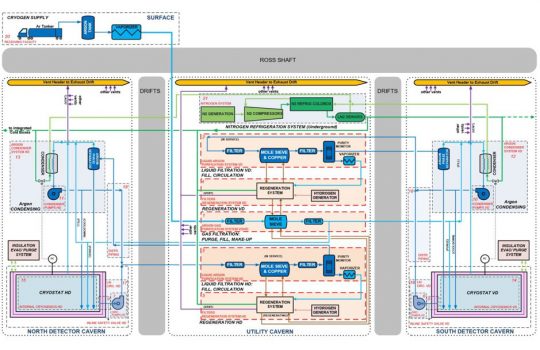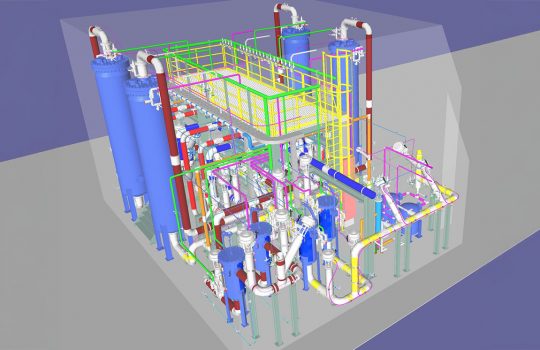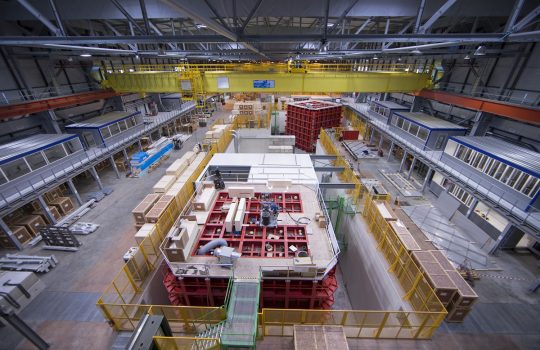The Honorable Martina Hirayama, Switzerland’s state secretary of education, research and innovation, visited the U.S. Department of Energy’s Fermi National Accelerator Laboratory on Oct. 20 to further strengthen the strong partnership between Switzerland and the United States in neutrino physics and collaboration on the international Deep Underground Neutrino Experiment.
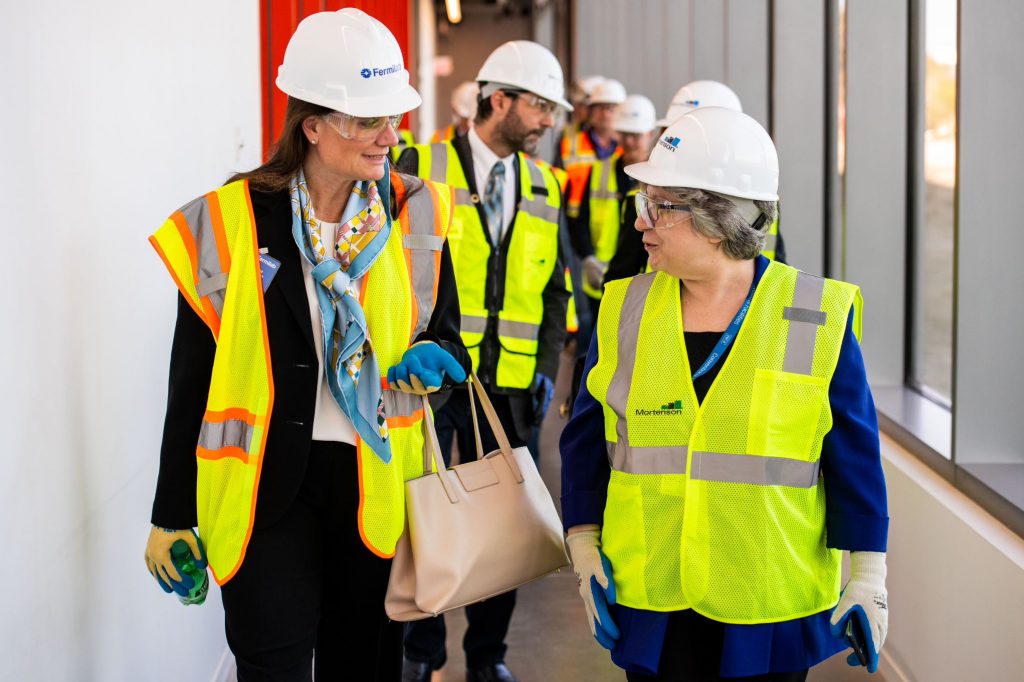
The Honorable Martina Hirayama tours Fermilab’s new IERC building with Director Lia Merminga on Oct. 20. Photo: Ryan Postel, Fermilab
Fermilab’s Director Lia Merminga and Deputy Director Bonnie Fleming led the delegation welcoming the Swiss state secretary for a tour of Fermilab’s new Integrated Engineering Research Center to discuss the lab’s neutrino program. The IERC will house the detector modules built by the University of Bern for the DUNE ND-LAr near detector. The ND-LAr is the most important component of the near detector and one that directly enables the physics sensitivity of DUNE.
Switzerland has been a leader in the development of the liquid argon detector technology at the University of Bern and ETH Zurich, a public research university, for more than a decade. This technology is being adopted by the international community for neutrino research.
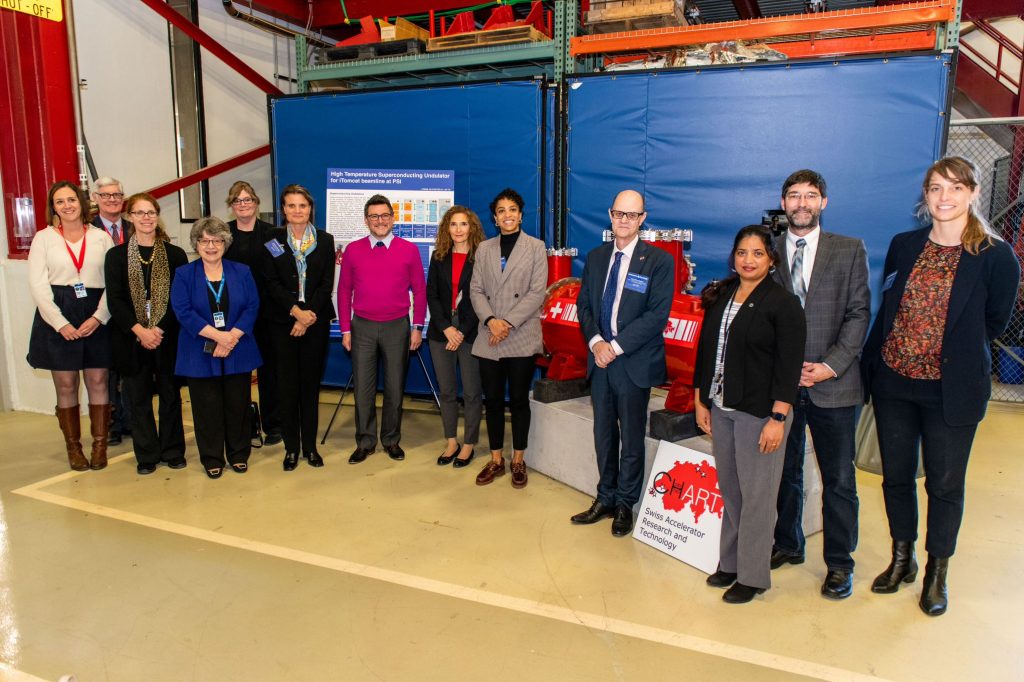
At Fermilab’s Industrial Center Building, the delegation visited the lab’s Applied Physics and Superconducting Technology Division. Photo: Ryan Postel, Fermilab
“Our Swiss collaborators, including CERN, play a vital role in developing the unique design of liquid argon technologies for DUNE,” said Merminga. “Their contributions are an essential component for the success of this ambitious venture.”
Switzerland and CERN have been strongly involved in producing protoypes of the liquid-argon detectors that will lead to the final design of the DUNE near and far detectors.
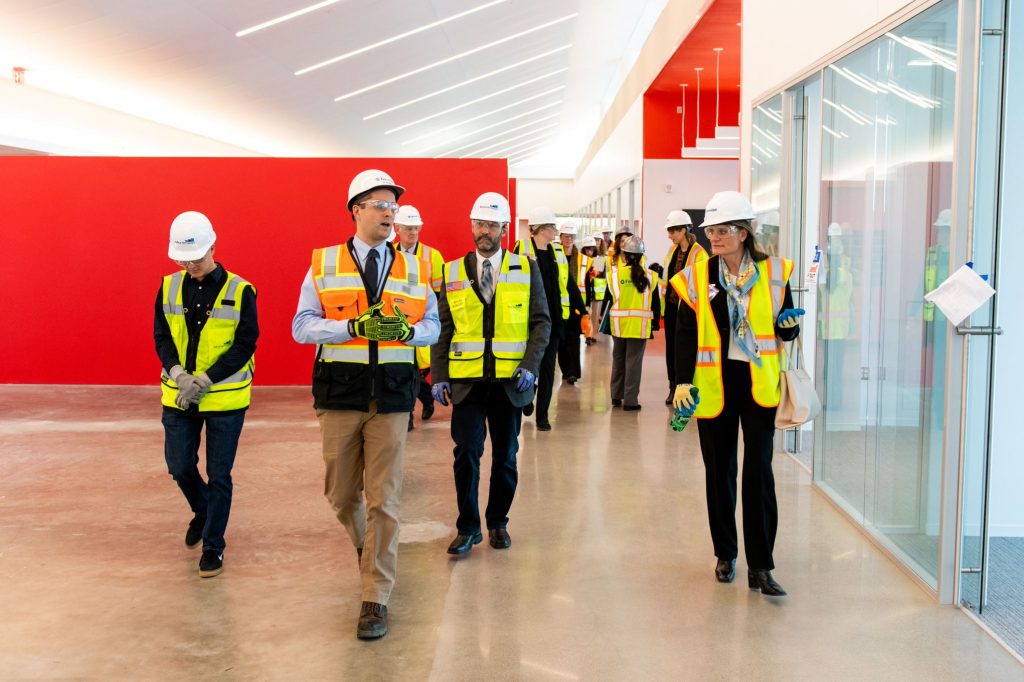
The Honorable Martina Hirayama, Swiss state secretary, tours the new IERC with project manager Brian Rubik, senior engineer in Fermilab’s Infrastructure Services Division. Photo: Ryan Postel, Fermilab
In addition, the MicroBooNE and SBND experiments that are part of the Short-Baseline Neutrino program at Fermilab were built with significant contributions from the University of Bern. This, in turn, led to Switzerland’s leading role in designing the ND-LAr near detector for the DUNE experiment.
Fermi National Accelerator Laboratory is supported by the Office of Science of the U.S. Department of Energy. The Office of Science is the single largest supporter of basic research in the physical sciences in the United States and is working to address some of the most pressing challenges of our time. For more information, please visit science.energy.gov.

